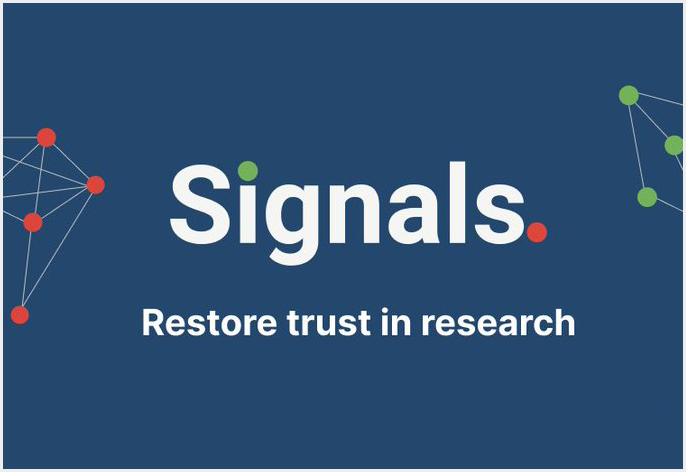
Introducing Sleuth AI: Signals’ AI-powered research integrity assistant
We’re excited to launch the next generation of research integrity evaluation. Sleuth AI transforms how editorial and research integrity teams investigate manuscripts — turning hours of manual analysis into minutes of intelligent, interactive exploration. Ask questions, uncover evidence, detect potential issues — all with the transparency and explainability that research integrity decisions demand.
Designed to fit seamlessly into editorial workflows, Sleuth AI is integrated directly into Signals Manuscript Checks — providing a secure, private, interactive assistant.

Sleuth AI sits alongside Signals evaluation as part of Signals Manuscript Checks
Signals’ approach to AI and research integrity
AI is rapidly disrupting every part of the research ecosystem — from discovery to publication. This brings new integrity risks for publishers, including convincing fabricated content.
Since Signals launched, we’ve used AI to scale our operations — for example, extracting references from manuscripts. However, we chose not to take an AI-first approach to manuscript analysis. Why? Signals’ approach has always been about transparency and explainability. The stakes are high in research integrity evaluations: for authors, a false positive can result in frustrating publication delays or rejections that affect careers; for publishers, making the wrong decision can lead to a future retraction and reputational damage. For these reasons, typical black-box AI approaches that lack transparency are not good enough. Sleuth AI is designed with transparency in mind.

Sleuth AI identifies an irrelevant section of a manuscript
What Sleuth AI does today
When it comes to research integrity evaluations, publishing teams need support to:
- Automate time-consuming manual checks so that individuals can focus on other priorities.
- Introduce new checks that accurately identify issues in manuscripts.
- Identify evidence that enables quick decision-making.
Sleuth AI supports all of these goals, helping editorial and integrity teams catch problematic articles before they waste valuable staff and peer reviewer time. It also adds something new — personalisation. Integrity teams can now experiment with new investigative checks, enabling them to adapt as the integrity landscape continues to evolve.
Built to provide reliable evidence directly from the manuscript, Sleuth AI is instructed to stick to what it knows. When it can’t provide an answer or lacks information, it will say so — helping minimise hallucinations.
Here are a few examples of what Sleuth AI can do today — these are provided as pre-defined prompts in the first release:
- Increase the efficiency of editorial checks by extracting and highlighting COI, funding, and ethics statements, and flag anything unusual.
- Provide evidence of citation issues by showing users exactly where in a manuscript potential citation misconduct occurs.
- Add new exploratory analysis that detects irrelevant or inconsistent text that could indicate low-quality or AI-generated content.

Sleuth AI extracts disclosure statements from manuscripts and flags a potential issue
What’s Next for Sleuth AI
We’re most excited about the future of Sleuth AI.
Sleuth AI enables us to rapidly experiment with new ways to investigate articles. As effective methods emerge, we’ll convert them into standard signals, constantly improving the evaluations we provide to the scholarly community.
In the near term, Sleuth AI will be enhanced with the Signals Data Graph which combines networked analysis of the world’s publications with expert knowledge. This will give users deeper insight into individual signals — for example, Sleuth AI will be able to explain how a specific retracted reference affects an article’s conclusion.
Looking further ahead, we’ll create contextual and deep evaluations of any article, and plan to roll out Sleuth AI more broadly. From researchers and clinicians to policymakers and the public, everyone engaging with research needs tools to understand what’s credible, relevant, and worth their attention.
Sleuth AI is available now to all publishers using Signals Premium Manuscript Checks via ScholarOne integration and Direct Upload.






























